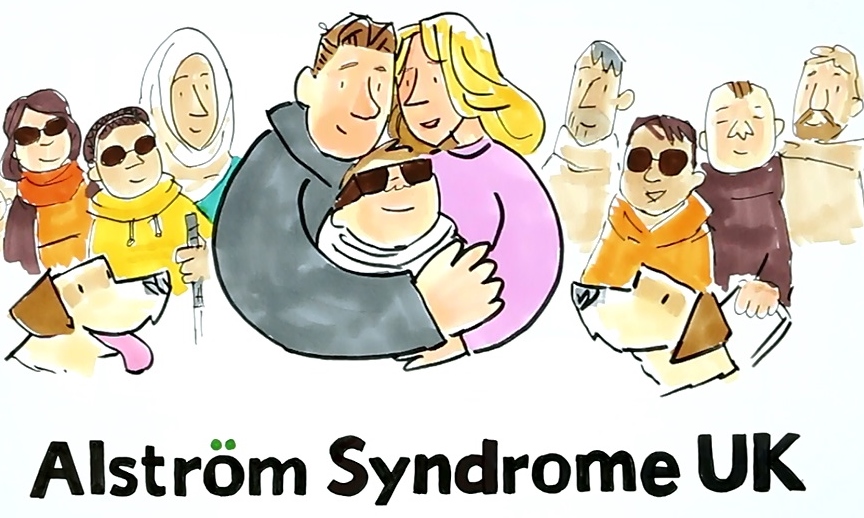Are you receiving the right support?

Are you receiving the right support?
 Date: 23 Apr, 2025
No Comments
Date: 23 Apr, 2025
No Comments
Check you’re receiving the right support
There have been some payment increases for those who receive benefits from the Department of Work & Pensions (correct as of April 2025).
If you don’t currently claim these benefits and would like to talk it through with our support team, the ASUK Care Coordinators, can support you through the process:
Sarah or Clair would be delighted to hear from you and their contact information can be found HERE
Carer’s Allowance (England and Wales) & Carer Support Payment (Scotland)
https://www.gov.uk/carers-allowance
Carer’s Allowance is paid to help you look after someone with substantial caring needs. You do not have to be related to, or live with, the person you care for.
To qualify for this benefit, you need to meet the following criteria:
- The person you care for must be in receipt of PIP, DLA or Attendance Allowance
- You must be providing care for at least 35 hours per week
- You must be aged 16 or over
- You must live in England
- You have been living in England, Scotland or Wales for 2 of the last 3 years
- You are not in full time education
- You are not studying for more than 21 hours per week
- You do not earn more than £xxx per week (after tax and certain expenses)
- You are not subject to immigration control
You do not get paid extra if you care for more than one person
If someone else also cares for the same person as you, only one of you can claim Carer’s Allowance
April 2025 – The amount of earnings that a carer can have and still qualify for Carer’s Allowance and the Carer Support Payment in Scotland has increased from £151 to £196 per week.
This increase will guarantee that anyone working 16 hours or less at National Living Wage is eligible for Carer’s Allowance or Carer Support Payment. You must still meet the other caring rules to qualify.
IMPORTANT – A reminder that Carer’s Allowance also provides automatic Class 1 National Insurance (NI) credits for each week it’s received, helping build your State Pension record. If you don’t qualify for Carer’s Allowance, you can apply for Carer’s Credit, which also provides NI credits. https://www.carersuk.org/help-and-advice/financial-support/carer-s-allowance/
Carer’s Allowance can affect the person who’s being cared for benefits in some circumstances see below.
Information from Carers UK:
Benefits for the person you care for:
Carer’s Allowance will not reduce or stop certain disability benefits (such as PIP, Attendance Allowance, DLA) the person you care for is receiving. However it can sometimes affect any means-tested benefits they get.
If the person you care for receives a “severe disability premium” paid with any of their means-tested benefits (such as income-related ESA or an extra amount for severe disability paid with Pension Credit), this will stop when you claim Carer’s Allowance.
These severe disability amounts can also affect the amount of Housing Benefit and Council Tax Support/Reduction a person may get so if you have any doubts, it is a good idea to arrange a benefit check. Email the Carers UK Helpline team, advice@carersuk.org or as a starting point, you could try out this benefits calculator.
Disability Living Allowance (England & Wales) & Child Disability Payment (Scotland) – for children under the age of 16 – https://www.gov.uk/disability-living-allowance-children
Disability Living Allowance (DLA) for children may help with the extra costs of looking after a child who:
- is under 16
- has difficulties walking or needs much more looking after than a child of the same age who does not have a disability
They will need to meet all the eligibility requirements.
The child’s disability or health condition must mean at least one of the following apply:
- they need much more looking after than a child of the same age who does not have a disability
- they have difficulty getting about
- They must have had these difficulties for at least 3 months and expect them to last for at least 6 months.
DLA is paid at different rates made up from two components (parts). The child may qualify for one or both components.
Care Component – The rate the child gets depends on the level of looking after they need – Low rate / Middle rate / High rate
Mobility Component – The rate the child gets depends on the level of help they need getting about – Low rate / High rate
Personal Independence Payment (England & Wales) & Adult Disability Payment (Scotland) for people aged 16 – 64
https://www.gov.uk/pip
Personal Independence Payment (PIP) can help with extra living costs if you have both:
- a long-term physical or mental health condition or disability
- difficulty doing certain everyday tasks or getting around because of your condition
You can get PIP even if you’re working, have savings or are getting most other benefits.
Personal Independence Payment is also paid at different rates made up from two components. You may qualify for one or both components.
Daily Living Component – if you need help with everyday tasks – Standard Rate / Enhanced Rate
Mobility Component – if you need help with getting around – Standard Rate / Enhanced Rate
Universal Credit
https://www.gov.uk/universal-credit
Universal Credit is a payment to help with your living costs.
You may be able to get Universal Credit if you’re on a low income or need help with your living costs. You could be:
- out of work
- working (including self-employed or part time)
- unable to work, for example because of a health condition
To claim you must:
- live in the UK
- be aged 18 or over (there are some exceptions if you’re 16 to 17)
- be under State Pension age
- have £16,000 or less in money, savings and investments
There are different eligibility rules if you’ve received a Migration Notice letter telling you to claim Universal Credit.
You can use a benefits calculator to check what benefits you could get.
Finally, for Parents:
- The organisation CONTACT – for families with disabled children – have partnered with Renaissance Legal to offer a free 1 hour webinar about planning for the future when you are no longer here to support your loved one. It is on Wednesday 21 May, 10-11am, you’ll hear more about the importance of writing a Will and Letter of wishes, and how to protect means tested benefits and support packages through trusts. You’ll have the opportunity to put your questions to Renaissance Legal’s leading Wills & Trust expert, Philip Warford. To book a place please click here https://action.contact.org.uk/page/169514
- Understanding Mental Capacity – preparing for adulthood – https://contact.org.uk/help-for-families/information-advice-services/preparing-for-adult-life/parental-responsibility-amp-mental-capacity-beyond-16/
Having mental capacity is the ability to make a decision, whether it is an everyday decision such as what to wear, or a more important decision such as choosing where to live. As your child gets older, you might have to decide whether they’re able to make decisions for themselves. If not, there may be legal steps you can take to make decisions on their behalf. There are different ways of making decisions for someone who lacks mental capacity:
Power of attorney
Power of attorney is when a person gives their consent to someone else to make decisions on their behalf, for example in the event they get ill or have an accident.
The person must have the mental capacity to give someone power of attorney to make decisions on their behalf.
There are different types of power of attorney, including across each UK nation. These include lasting power of attorney in England and Wales; continuing and welfare powers of attorney in Scotland; and enduring power of attorney in Northern Ireland.
Becoming an appointee
An appointee is a role particular to the Department of Work & Pensions welfare benefits system. By acting as your child’s appointee, you’ll be able to manage on their behalf the benefits they receive from age 16. This includes Personal Independence Payment, Child Disability Payment, Adult Disability Payment and Universal Credit.
Acting as your child’s appointee means that you’ll receive their benefits for them. You’ll be able to make claims on their behalf, and you’ll be responsible for keeping the relevant office informed of any change to your child’s circumstances.
Becoming a deputy (England and Wales)
If your child has always lacked mental capacity, you can apply to the Court of Protection to become their deputy. Becoming your child’s deputy will allow you to make decisions on their behalf.
Property and financial affairs deputies can manage someone’s bills and finances. Personal welfare deputies can make decisions about medical treatment, personal care or where you live. You can apply to be one type of deputy or both.
However, the Mental Capacity Act Code of Practice states that the court will appoint personal welfare deputies only in the most difficult cases, where either:
Important and necessary actions cannot be carried out without the court’s authority.
There is no other way of settling the matter in the best interests of the person who lacks capacity to make particular welfare decisions.
If a personal welfare decision is not controversial and no one opposes it, it may be possible to make the decision on behalf of the person who lacks mental capacity without referring to the Court of Protection.
The Court of Protection will also hear cases for becoming a deputy for a child aged 16 to 17 where any of the following applies:
- The local authority is involved.
- There is a dispute.
- It is a decision that legally does not fall under parental responsibility.
The Court of Protection is likely to refuse a deputyship application if there is some other way to achieve the benefit to your child.
https://www.gov.uk/become-deputy
Becoming a controller (Northern Ireland)
In Northern Ireland, the High Court can appoint you to become your child’s controller. A controller can manage financial affairs on behalf of someone who lacks mental capacity.
Guardianship orders, intervention orders and access to funds (Scotland)
A guardianship order allows you to make decisions on an ongoing basis for someone who lacks mental capacity, for example to do with healthcare or finances. You can apply for a guardianship order up to three months before your child’s 16th birthday.
An intervention order grants decision-making rights on behalf of a person lacking mental capacity on a one-off basis.
Please do get in touch if you need to discuss any benefits advice, guidance or support.
The AS Care Coordinators, Clair and Sarah are on hand to support you, their contact information can be found HERE

